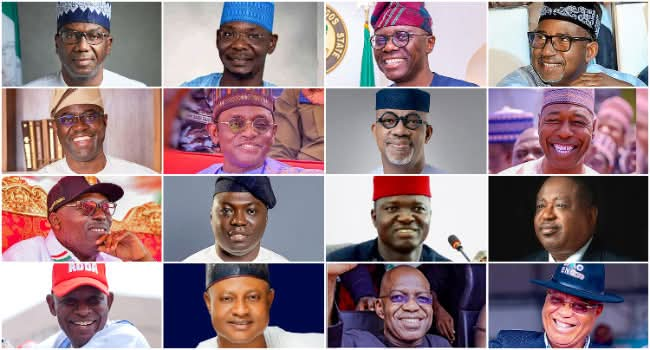-In the first nine months of 2024, 29 state governors spent N1.994 trillion on recurrent expenditures such as refreshments, allowances, travel, and utilities, excluding personnel costs. Lagos, Plateau, and Delta States led in spending with N375.19 billion, N144.87 billion, and N121.54 billion, respectively.
-The states collectively generated N1.92 trillion as internally generated revenue, falling short of the N2.868 trillion target by N948.28 billion, despite enjoying a 40% increase in statutory allocations due to fuel subsidy removal and foreign exchange unification.
-States borrowed N533.29 billion and spent N658.93 billion on debt servicing within the period. Niger State borrowed the most (N79.09 billion), followed by Katsina (N72.89 billion) and Oyo (N62.48 billion). Some states, like Akwa Ibom, spent more than double their revenue on recurrent expenditures.
-States like Bauchi, Benue, and Ebonyi significantly overspent on recurrent expenditures compared to their internally generated revenue (IGR). For example, Bauchi spent N99.31 billion on expenses but only generated N15.92 billion in IGR, while Ebonyi’s recurrent spending of N37.73 billion far exceeded its N15.67 billion revenue.
-Many states relied on loans to bridge their fiscal gaps. Bauchi borrowed N33.64 billion, Cross River N20.67 billion, and Edo N12.84 billion, with substantial portions allocated to debt servicing, such as Delta’s N55.9 billion and Bayelsa’s N30.54 billion.
-A few states, like Bayelsa and Enugu, exceeded their revenue targets. Bayelsa collected N57.85 billion, surpassing its N23.87 billion target, while Enugu generated N39.98 billion, significantly higher than its recurrent spending of N10.88 billion.
-Many states, such as Taraba, Plateau, and Ondo, recorded significant fiscal deficits due to recurrent expenditures far exceeding their internally generated revenues. For instance, Taraba spent N58.39 billion on recurrent expenses but generated only N7.84 billion, creating a deficit of N50.55 billion.
-Several states relied heavily on loans to sustain operations, such as Katsina (N72.89 billion), Kogi (N51.68 billion), and Taraba (N52.63 billion). Debt servicing also consumed substantial portions of budgets, with Lagos paying N84.53 billion and Taraba N21.19 billion during the period.
-Experts like Professor Segun Ajibola criticized inadequate oversight and accountability in state governance, noting that excessive spending on governance yields minimal grassroots benefits. The Fiscal Responsibility Commission warned that Nigeria’s fiscal federalism structure is unsustainable without significant reforms.
Peoplesmind


